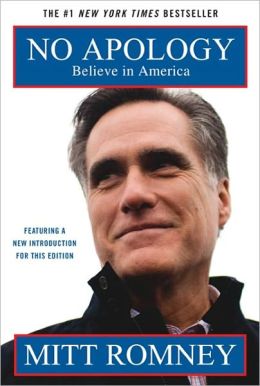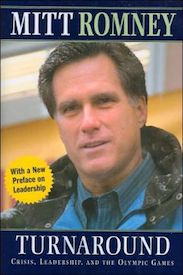No Apology: The Case for American Greatness
In No Apology: The Case for American Greatness, Mitt Romney discusses many foreign policy and domestic issues facing America and suggests solutions he believes will lead to a more safe and robust nation. Special attention is paid to national security, economic productivity, education, energy, and cultural fortitude.
The overall tone of the text is analytical. Like any practical businessman, Romney loves his data. In his own words, “This is a book about what I believe should be our primary national objective: to keep America strong and to preserve its place as the world’s leading nation. And it describes the course I believe we must take to strengthen the nation in order to remain prosperous, secure, and free.”
Romney warns against American complacency by outlining the manner in which other nations have, throughout history, declined from greatness. The Ottomans, Spanish, Chinese, and British — among others — serve as potent examples of just how easily a great nation can fall from grace by virtue of such destructive policies as economic and cultural isolation, a withdrawal from the international marketplace, and spending far and above one’s means.
Romney’s declaration that, “We tend to repress the possibility of catastrophic events” is dead on. People tend to see what they feel they can handle, and the rest — despite potentially disastrous effects if not addressed — is often ignored. See our 2008 financial crisis for details.
Romney adeptly expresses America’s need for both “soft power” and “hard power” involvement in the international community. He doesn’t sugarcoat alarming realities with respect to China, Russia, radical jihadists, and Iran. Despite economic challenges, he rightfully prioritizes national defense and criticizes the UN’s “inclinations toward authoritarian regimes.” Romney unapologetically defends updating our nuclear arsenal, developing a powerful missile-defense system, adding a minimum of 100,000 soldiers to the Marines and Army, and pursuing new technologies to combat the likes of cyber-warfare.
Romney also proclaims American exceptionalism, defends the notion that, “The world is a safer place when America is strong,” and praises our hard-working roots. He duly cites welfare without work and entitlement program abuses as threats to the industrious character that birthed our unrivaled success.
Romney gives detailed emphasis on economic productivity, innovation, research and development, reducing taxes on investment, and curbing government’s growing deficits: “We need to stimulate the economy, not the government.” However, he also states that “Secretary Paulson’s TARP prevented a systemic collapse of the national financial system” and “personal taxes on dividends, interest, and capital gains for all middle-income families should be completely eliminated.”
Romney’s in-depth discourse on healthcare outlines his Massachusetts plan, which he distinguishes from the Obama plan primarily because “our plan did not include a public insurance option.” He asserts that his proposal to the legislature included that “those who could afford insurance would either buy it or, in the alternative, pay their own health-care costs” and “for those who couldn’t afford health insurance on their own, the state would pay a portion of their premium with the amount of the subsidy determined on a sliding scale by income.”
According to Romney, the Massachusetts legislature added features to his original healthcare proposal such as “a small fee paid by employers who didn’t insure their employees, and no opt-out provision for people who wanted to forgo insurance and pay their own way.” Despite the fact that he claims to prefer the notion of allowing each state to construct its own program, he adds that, “But the creation of a national plan is the direction in which Washington currently is moving.”
Romney’s stand on education is well-presented and includes the necessity of English immersion for immigrant children and a discussion of the often-debilitating effects of teachers’ unions. He argues the case that unions consistently advocate for classroom size limitations to create more hires and a greater influx of union dues, despite studies confirming that a small class size is not positively linked to performance. His statistic that “the two major teachers’ unions in the United States have over 6,000 employees and annual revenues in excess of $1.5 billion, more than both political parties combined,” is definitely worth highlighting.
Romney properly emphasizes the importance of achieving energy security and asserts that “Nuclear, natural gas, coal, and additional drilling for oil will help a great deal in moving us toward energy security.” Although such statements as “If, in fact, global warming is importantly caused by our energy appetite, it’s yet one more reason for going on an energy diet” didn’t sit perfectly with me, I welcomed his stand against cap-and-trade.
All in all, Romney’s book provides a well-organized display of his stand on key issues. His Obama critique is well executed, including commentary on Obama’s abandonment of our missile defense program in Poland and the Czech Republic, his repeated apologies for America, his expansion of our debt, and his September 2009 UN address. Romney’s intermittent anecdotes with regard to business experiences, hands on encounters as governor, and the trials and tribulations of his own family, add a nice personal touch to his policy and statistical explorations. My two favorite lines from the text include “But for most Americans, the pulse of freedom beats in our very DNA” and “The greatness of America lies not simply in what we have done with our power; it is also informed by what we have not done with our power”
Romney’s No Apology: The Case for American Greatness is a sound expression of his approach to some of our nation’s greatest present challenges.
Book Review from Human Events, by Jedediah Bila
Tags: Mitt Romney, No Apology: The Case for American Greatness
- The Author
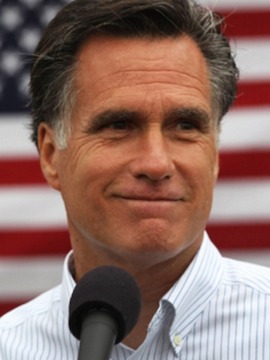
Mitt Romney
Mitt Romney is the former Governor of Massachusetts. Before becoming Governor in 2003, Romney led the Salt Lake City Organizing […] More about Mitt Romney.
- Books by the Author
- Related Articles
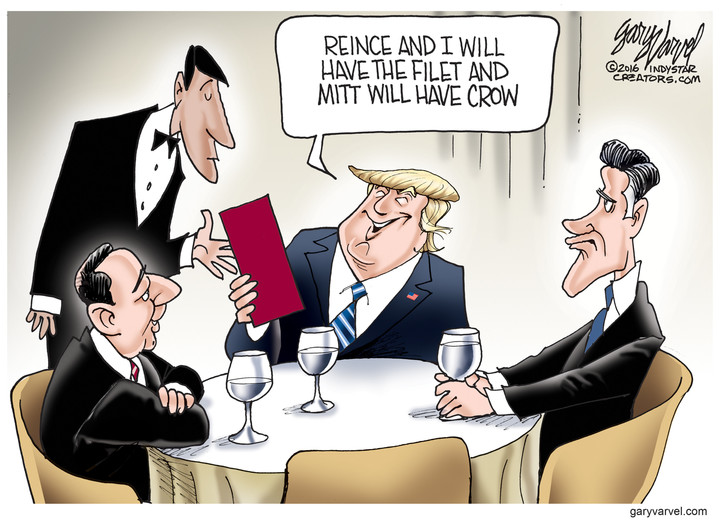
Cartoon: See Why Mitt Romney Is Eating Crow!
Mitt Romney criticized Trump -- see why now, Romney is eating crow!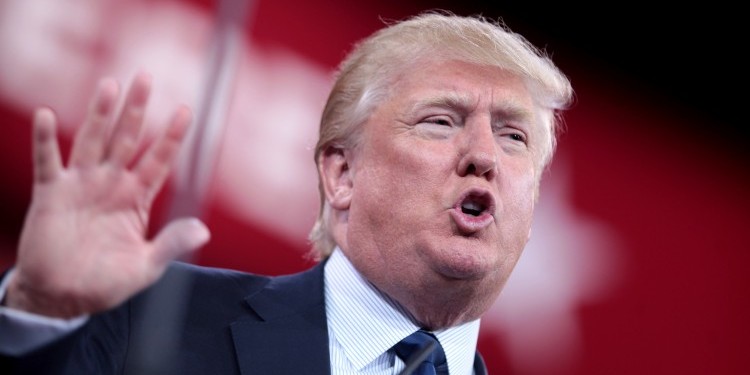
Who Will Be Trump’s Secretary of State?
Who will end up being picked to be Trump's Secretary of State? Make your prediction in our CBC reader poll!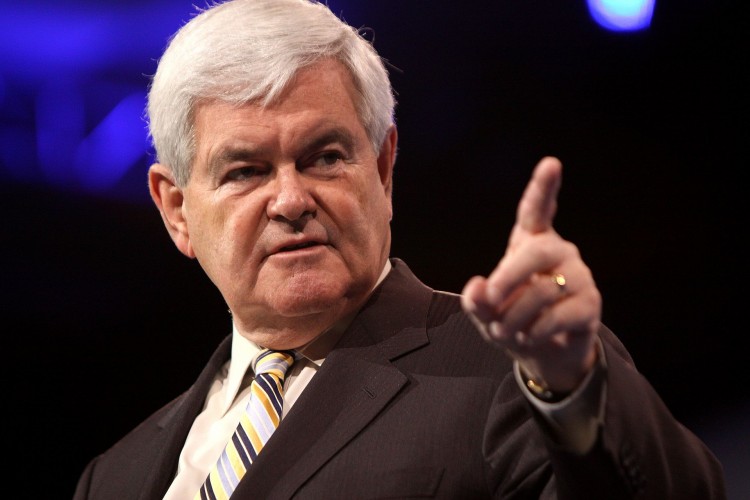
You Won’t Believe What Newt Gingrich Said About Mitt Romney
"We will support President-elect Trump in whatever he does, but we will be enormously disappointed if he brought Mitt Romney[...]
Should Romney Be Trump’s Sec. State?
Should Mitt Romney be Trump's Secretary of State? Vote in our CBC reader poll!
Should Mitt Romney Run As A 3rd Party Candidate?
Should Mitt Romney run for president as a 3rd party, #NeverTrump option? Make your decision in our CBC member poll!
Ratings Details




